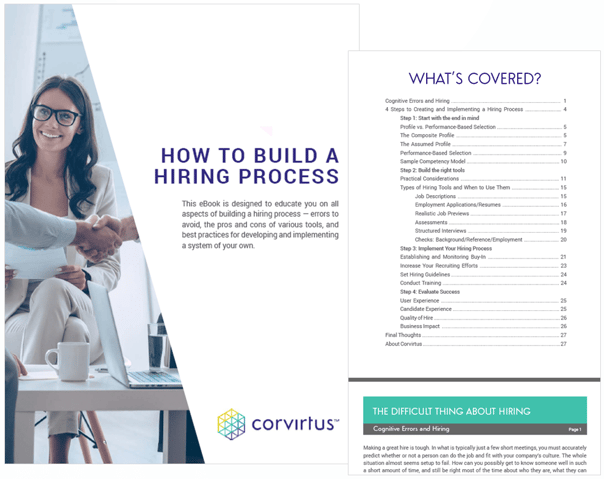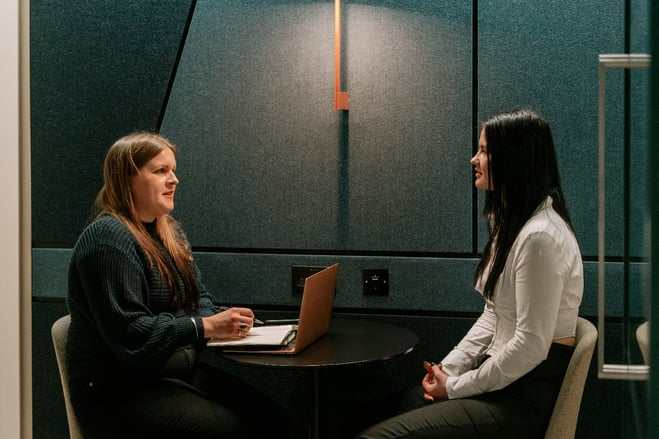It's been a minute, but during her tenure as CEO of Yahoo, Marissa Mayer personally reviewed every new hire. At Amazon, Jeff Bezos did the same through the early years of the company. While this could seem like a solid but intensive approach to building a strong culture and performance, consider the significant amount of time this policy required. Yahoo and Amazon had 12,300 and 3,000 to 7,000 employees, respectively, at the time.
Structured Interviewing: Shared Standards + Greater Effectiveness
Mayer later shared that she did this to "prevent B-players from hiring C-players;" but there are a range of realistic strategies and solutions to reduce time and results.
Enter structured interview processes. When grounded in your competencies, culture, and job requirements, structured interviews, perhaps enriched by hiring assessments, can provide leadership with greater confidence in hiring decisions, yielding a more efficient, effective, and time-saving process.
Connecting Interviewing to Competencies and Culture
A structured interview is a standardized method for evaluating job candidates with pre-set questions focused on the knowledge, skills, and characteristics that were determined to be required for the job. Asking the same, or equivalent, questions across all candidates and using a quantifiable and consistent method for scoring responses, encourages hiring decisions that are based on job-relevant information, and not personal opinions or 'gut feelings.'
Download Our Hiring Process eBook
The four powerful benefits of structured interviews you should know:
- Effectiveness. One structured interview can provide the same amount of accurate information as four unstructured interviews – making your hiring process not only more accurate, but more efficient. To increase accuracy even further, we recommend including more raters or using a panel interview format.
- Consistency. All candidates are treated the same. Because decision-makers have the same information for every candidate, comparisons can be made quickly in terms of candidates’ potential for success if hired, further streamlining the decision-making process and improving confidence in those decisions.
- Fairness. All candidates are treated objectively because questions are based on job requirements. This also makes it easier for candidates to see the link between what they are being evaluated on and the job, improving the candidate experience.
- Legal defensibility. Because structured interviews predict performance better than unstructured, and provide more detailed job-related documentation, they are markedly more defensible in court. In a recent case review, only 13 percent of structured interviews were found discriminatory, but half of unstructured interview cases received the same ruling.

Structured interview questions can take many forms. Candidates can be asked to respond to situations encountered on the job, or describe past experiences that measure essential abilities and characteristics. Interviewers might use a behavioral checklist to measure how well candidate responses overlap with core competencies. For a dynamic company like Yahoo, structured interviews might reflect future needs and goals, as well as include core job requirements.
What is your experience with interview practices? How do you assess future performance with interviewing, while maintaining a positive candidate experience? We’d welcome the chance to connect and learn from your challenges and successes.
Featured image photo by Unsplash+ In collaboration with Getty Images






